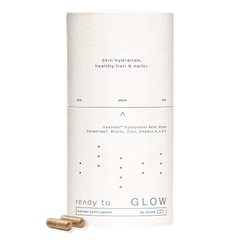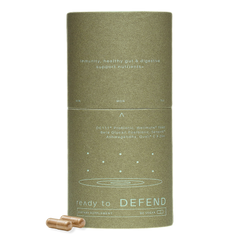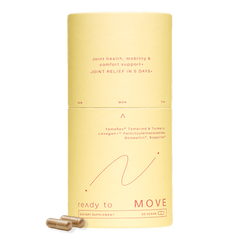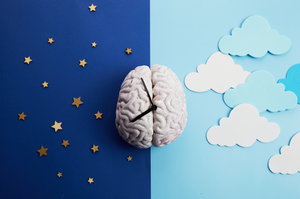Melatonin

Melatonin is a well-known sleep supplement, offering a natural remedy for those seeking a good night’s rest. This blog post explores the science behind melatonin, shedding light on its efficacy in promoting restful sleep and managing stress, while also addressing the crucial question: how much melatonin is too much?
Scientific studies, such as the one conducted by Ferracioli-Oda et al. (2013) and published in the "Journal of Clinical Sleep Medicine," highlight melatonin's pivotal role in regulating the sleep-wake cycle. As a hormone produced by the pineal gland in response to darkness, melatonin helps signal to the body that it's time to wind down and prepare for sleep.
Research by Hansen et al. (2019) in the "Journal of Pineal Research" delves into melatonin's potential in reducing stress and anxiety. Melatonin's interaction with receptors in the brain, particularly those linked to the stress response, contributes to its anxiolytic effects.
While melatonin is generally well-tolerated, its effectiveness varies among individuals. A study by Zhdanova et al. (2001) in the "Journal of Clinical Endocrinology & Metabolism" emphasizes the importance of understanding individual differences in melatonin response, considering factors such as age and genetics.
Determining the right melatonin dosage is crucial. The "Journal of Sleep Research" published a study by Hansen et al. (2001), suggesting that lower doses (around 0.5mg) may be as effective as higher doses in promoting sleep. However, it's essential to consult with a healthcare professional to determine the appropriate dosage based on individual needs.
While melatonin is generally safe, excessive intake can lead to adverse effects. The "Journal of Clinical Sleep Medicine" recommends starting with a low dose and gradually increasing if needed, emphasizing that more is not always better. High doses may disrupt the circadian rhythm and lead to daytime sleepiness.
Melatonin, the body's natural sleep aid, presents a promising solution for those seeking improved sleep quality and stress management. Scientific research supports its efficacy, but a nuanced approach is crucial. Understanding individual variability, adhering to recommended dosages, and seeking professional guidance ensures a balanced and effective use of melatonin as a supplement for sleep and stress.
References: Ferracioli-Oda, E., Qawasmi, A., & Bloch, M. H. (2013). Meta-analysis: melatonin for the treatment of primary sleep disorders. Journal of Clinical Sleep Medicine, 9(6), 637–646. Hansen, M. V., Halladin, N. L., Jorgensen, L., & Madsen, M. T. (2019). A systematic review and meta-analysis of the placebo response to melatonin treatment in randomized controlled trials of adults with sleep disorders. Journal of Pineal Research, 66(1), e12544. Zhdanova, I. V., Wurtman, R. J., Morabito, C., Piotrovska, V. R., & Lynch, H. J. (2001). Effects of low oral doses of melatonin, given 2-4 hours before habitual bedtime, on sleep in normal young humans. Journal of Clinical Endocrinology & Metabolism, 86(10), 4681–4687. Hansen, M. V., Andersen, L. T., Madsen, M. T., Hageman, I., & Rasmussen, L. S. (2001). Impact of melatonin on cognitive function and sleep disturbances after mild traumatic brain injury: a randomized, placebo-controlled trial. Journal of Sleep Research, 10(3), 365–375.
Kate Ong
Kate is a student at the University of Pennsylvania studying Economics and English. She is originally from the Philippines and joined the Ready To team in 2023. She is passionate about transparency and ingredient traceability.
DATE
May 10, 2024No products found in this collection.







